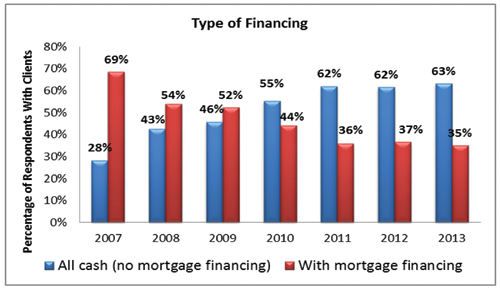By Mitch Creekmore, CIPS, Stewart Title Guaranty Company
Have you ever considered buying a residence in a foreign country? Many Americans and Canadians have an interest in a second home for vacation or retirement purposes. Most interested purchasers are not familiar with the transaction process or how real property rights are established in foreign jurisdictions south of the United States border. Often, U.S. citizens think it can’t be much different than buying a house in this country; however, that notion is very far from the truth. Realty conveyances in Latin American and European countries are exceedingly different than U.S. transactions.
As buyers in the American residential real estate arena, we have a reliance on title insurance companies to handle the transaction. They provide a “cradle to grave” service that includes receipt of the contract, receipt of the earnest money deposit, acting as a neutral escrow agent, providing the title investigation process with issuance of a commitment for title insurance, preparation of the deed of conveyance, proration of property taxes, consummation of the conveyance, and even paying real estate commissions to the agents in the deal. These various services and others are the responsibility of U.S. title companies to their customers. The concept of receiving a contract of indemnity concerning title matters and one’s ownership rights, i.e., a title insurance policy, has existed for more than 138 years in the U.S.
Title insurance companies do not exist in ANY country outside the U.S., not even Canada. Unlike the U.S., other common law countries and civil code jurisdictions have a reliance on attorneys to establish real property rights via their conveyance process. In places like Great Britain, Australia, Belize, Jamaica, the Bahamas and many other locals in the Caribbean, they use solicitors to handle real estate transactions. In Latin America including Mexico and many European countries like Spain, France, Italy, Germany and many others, purchasers must rely on notarios publicos to close property conveyances. These individuals may have a different name depending upon the country, but their functionality and responsibility in the transaction process is virtually the same. They are in essence the title company in the respective nation of their appointment providing judicial and fiscal certainty real estate transactions. In plain English, it is “their way or the highway” in conveying real estate. Please note though, they do not provide any form of a monetary indemnification to buyers like a title insurance policy does.
Likewise, foreign buyers of American realty must understand and know the difference in our U.S. conveyance system. As one can see, all purchasers anywhere must be prudent, patient and educated in the transactional process given a country’s real estate laws. There is an abundance of material and information that can help any buyer better understand the process wherever they choose to purchase realty.
Mr. Creekmore serves in an advisory capacity as an honorary member of the 2014 HAR International Advisory Group



